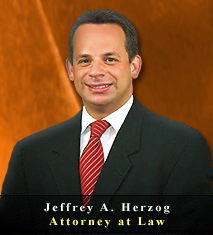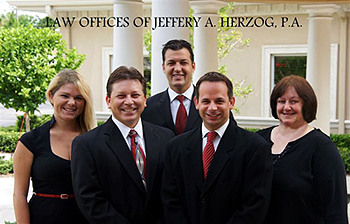What is estate
planning?
Why is estate planning important for me?
What does my estate include?
How do I name a guardian for my children?
What estate planning document should I have?
Q: What is
Estate Planning?
When someone passes away, his or her property must somehow pass
to another person. In the United States, any competent adult
has the right to choose the manner in which his or her assets
are distributed after his or her passing. (The main exception
to this general rule involves what is called a spousal right of
election which disallows the complete disinheritance of a spouse
in most states.) A proper estate plan also involves strategies
to minimize potential estate taxes and settlement costs as well
as to coordinate what would happen with your home, your
investments, your business, your life insurance, your employee
benefits (such as a 401K plan), and other property in the event
of death or disability. On the personal side, a good estate
plan should include directions to carry out your wishes
regarding health care matters, so that if you ever are unable to
give the directions yourself, someone you know and trust would
do that for you, and know when you would want them to authorize
extraordinary measures and when you would prefer they pull the
plug.
Back to the top.
Q: Why is estate planning important for me?
Sadly, many families dont do proper estate planning because
they dont believe that they have a lot of assets or otherwise
believe that their kids can just come in and divide their assets
by themselves. If you dont make proper legal arrangements for
the management of your assets and affairs after your passing,
the states intestacy laws will take over upon your death or
incapacity. This often results in the wrong people getting your
assets, and very often results in much higher estate taxes.
Specifically, if you die intestate, the transfer of your assets
is accomplished through a public, court-supervised proceeding
called probate that generally takes a minimum of six months,
typically a year or more. These public proceedings are generally
expensive and time-consuming in nature and tie up your assets
for several months. Even worse, your failure to outline your
intentions through proper estate planning can tear apart your
family as each person maneuvers to be appointed with the
authority to manage your affairs. Nor is it unusual for bitter
family feuds to ensue over modest sums of money or a family
heirloom.
Back to the top.
Q: What does my estate include?
Your estate is simply everything that you own, anywhere in the
world, including:
-
Your home or any other real estate that you own
-
Any interests you may have in any business
-
Your share of any joint accounts
-
The full value of your retirement accounts
-
Any life insurance policies that you own
-
Any property owned by a trust, over which you have a significant
control
Back to the top.
Q: How do I name a guardian for my children?
If you have children under the age of eighteen, you should
designate a person or persons to be appointed guardian(s) over
their person and property. Of course, if a surviving parent
lives with the minor children (and has custody over them) he or
she automatically continues to remain their sole guardian. This
is true despite the fact that others may be named as the
guardian in your estate planning documents. You should name at
least one alternate guardian in case the primary guardian cannot
serve or is not appointed by the court.
Back to the top.
Q: What estate planning document should I have?
A comprehensive estate plan should include the following
documents, prepared by an attorney based on in-depth counseling
which takes into account your particular family and financial
situation:
A Living Trust can be used to hold legal title
to and provide a mechanism to manage your property. You (and
your spouse) are the Trustee(s) and beneficiaries of your trust
during your lifetime. You also designate successor Trustees to
carry out your instructions as you have provided in case of
death or incapacity. Unlike a Will, a Trust usually becomes
effective immediately after incapacity or death. Your Living
Trust is "revocable" which allows you to make changes and even
to terminate it. One of the great benefits of a properly funded
Living Trust is the fact that it will avoid or minimize the
expense, delays and publicity associated with probate. Read the
FAQ section on Living Trust for more information.
If you have a Living Trust-based estate plan, you also need a
Pour-Over Will. A Pour-Over Will is used first
to name a guardian for minor children. Second, it protects
against intestacy in the event any assets have not been
transferred into the trust at the death of the Trustmaker/Owner.
It will also invalidate any previous Wills which you may have
executed. Its function is to "pour" any assets left out of the
trust into it so they are ultimately distributed according to
the terms of your Trust.
A Will, also referred to as a "Last Will and
Testament", is primarily designed to transfer your assets
according to your wishes. A Will also typically names someone
you select to be your Executor, who is the person you designate
to carry out your instructions. If you have minor children, you
should also name a Guardian as well as alternate Guardians in
case your first choice is unable or unwilling to serve. A Will
only becomes effective upon your death, and after it is admitted
by a probate court.
A Durable Power of Attorney for Property
allows you to carry on your financial affairs in the event that
you become disabled. Unless you have a properly drafted power of
attorney, it may be necessary to apply to a court to have a
guardian or conservator appointed to make decisions for you when
you are disabled. This guardianship process is time-consuming,
expensive, often costing thousands of dollars and emotionally
draining.
There are generally two types of durable powers of attorney: a
"present" durable power of attorney in which the power is
immediately transferred to your attorney in fact; and a
"springing" or future durable power of attorney that only comes
into effect upon your subsequent disability as determined by
your doctor. When you appoint another individual to make
financial decisions on your behalf, that individual is called an
"attorney in fact". Anyone can be designated, most commonly your
spouse or domestic partner, a trusted family member, or friend.
Appointing a power of attorney assures that your wishes are
carried out exactly as you want them, allows you to decide who
will make decisions for you, and is effective immediately upon
subsequent disability.
The law allows you to appoint someone you trust - for example, a
family member or close friend to decide about medical treatment
options if you lose the ability to decide for yourself. You can
do this by using a "Durable Power of Attorney for Health
Care" or Health Care Proxy where you designate the
person or persons to make such decisions on your behalf. You can
allow your health care agent to decide about all health care or
only about certain treatments. You may also give your agent
instructions that he or she has to follow. Your agent can then
ensure that health care professionals follow your wishes.
Hospitals, doctors and other health care providers must follow
your agent's decisions as if they were your own.
A Living Will informs others of your preferred
medical treatment should you become permanently unconscious,
terminally ill, or otherwise unable to make or communicate
decisions regarding treatment. Almost all states have instituted
living will laws to protect a patient's right to refuse medical
treatment. Even if you receive medical care in a state without
living will laws this document is useful to a court trying to
decide what an unconscious patient would want. In conjunction
with other estate planning tools, it can bring peace of mind and
security while avoiding unnecessary expense and delay in the
event of future incapacity.
Some medical providers have refused to release information, even
to spouses and adult children authorized by durable medical
powers of attorney, on the grounds that the 1996 Health
Insurance Portability and Accountability Act, or HIPAA,
prohibits such releases. In addition to the above documents,
you should also sign a HIPAA Authorization Form
that allows the release of medical information to your Agents,
your Successor Trustees, your family and other people whom you
designate.
Back to the top.


 We would also like to hear from you, so please contact us via telephone
We would also like to hear from you, so please contact us via telephone
 If you require professional legal advice and
representation in
If you require professional legal advice and
representation in